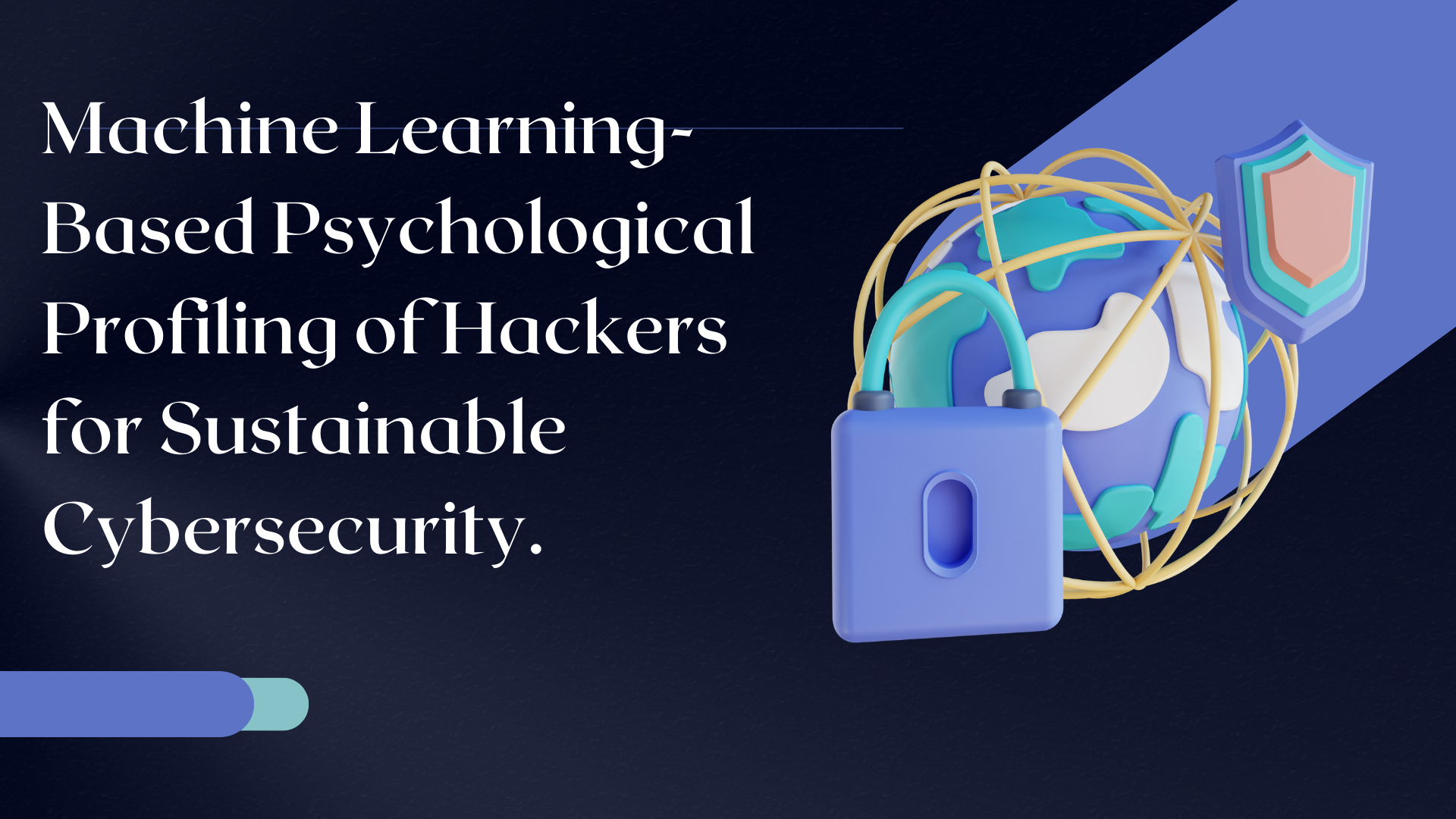We would suggest the cybersecurity personnels to read this post and understand the topic of Machine Learning-Based Psychological Profiling of Hackers for Sustainable Cybersecurity.
Machine Learning-Based Psychological Profiling of Hackers for Sustainable Cybersecurity
The proliferation of the Internet has coincided with an increase in cybercrime cases, since computers have become essential to many aspects of life. In order to achieve security goals like privacy, confidentiality, availability, and information integrity, cybercrime uses computers as instruments and conduits for crimes.
Hackers can find patterns in the vast volumes of text data they study by using machine learning-based psychological profiling of hackers. These patterns may point to planned cyberattacks. When it comes to identifying minor hints in online behavior or conversation that might indicate an impending threat, Machine Learning-Based technique is far more capable than humans.
For a more detailed understanding of Machine Learning-Based Psychological Profiling of Hackers for Sustainable Cybersecurity, continue reading this post.
Psychological Profiling of Hackers Significance
Hacker psychological profile aids security professionals in comprehending the thoughts and behaviors of cybercriminals. With this information, they can more accurately anticipate and stop the assaults. Security teams may better prepare their defenses and predict the next move of hackers by researching their thinking.
Psychological profiling can boost cybersecurity by identifying risks that conventional security techniques might overlook. Through insights into the behavior of the attacker, it complements technological solutions by bringing a human aspect to threat identification.
High degrees of technical proficiency, patience, and a desire for power or money are frequently displayed by these attackers. Additionally, a lot of people show a psychological detachment from the results of their acts, which enables them to injure others without feeling guilty about it.
More Details: Get Here
How ML-Based Psychological Profiling of Hackers for Sustainable Cybersecurity Works
In order to enable proactive defense strategies and a more sustainable cybersecurity approach, security teams can use machine learning algorithms to analyze large datasets of hacker behavior, online activity, and possibly even personality traits. This process is known as ML-based psychological profiling of hackers for sustainable cybersecurity.

Sustainability in this context refers to the development of procedures, techniques, and instruments that can endure and adapt over time to effectively address the ever-changing threats posed by hackers. The idea of “sustainable cybersecurity” calls for the deployment of strong defenses that are not only able to respond to current attacks but also anticipate and mitigate future dangers.
Based on the machine learning framework, to detect possible threats, the idea of “sustainable cybersecurity” emphasizes the necessity of long-lasting and effective tactics to adjust to the changing threats provided by hackers.
Important Considerations
Data collection includes compiling data from several sources, such as user activity, forum postings, social media profiles, network logs, and even self-reported personality tests, in order to provide a thorough picture of the actions and motives of a hacker.
Feature engineering is the process of identifying pertinent characteristics in data, such as target selection, communication patterns, technical proficiency, activity time, and even psychological characteristics like excitement or risk-taking.
Using algorithms such as decision trees, random forests, or neural networks to find patterns and correlations in the data, machine learning models enable the system to categorize hackers according to their psychological characteristics.
Analysis of personality traits, applying well-known personality frameworks, such as the “Big Five” (Openness, Conscientiousness, Extraversion, Agreeableness, and Neuroticism), to comprehend the psychological underpinnings of hacker behavior.
Cybersecurity has evolved significantly with the use of powerful linguistic technologies and psychological profiling. These techniques aid in our comprehension of the thoughts and behaviors of cybercriminals, which facilitates the identification and averting of risks.
However, we must exercise caution while using these instruments. We have problems to address and need to make sure we use them properly. There is a chance that these technologies will also be used to unjustly treat or spy on people. It is crucial to have guidelines on how to utilize them appropriately because of this.
Thanks a lot for dedicating your precious time in reading out this post on Machine Learning-Based Psychological Profiling of Hackers for Sustainable Cybersecurity, with our portal.
